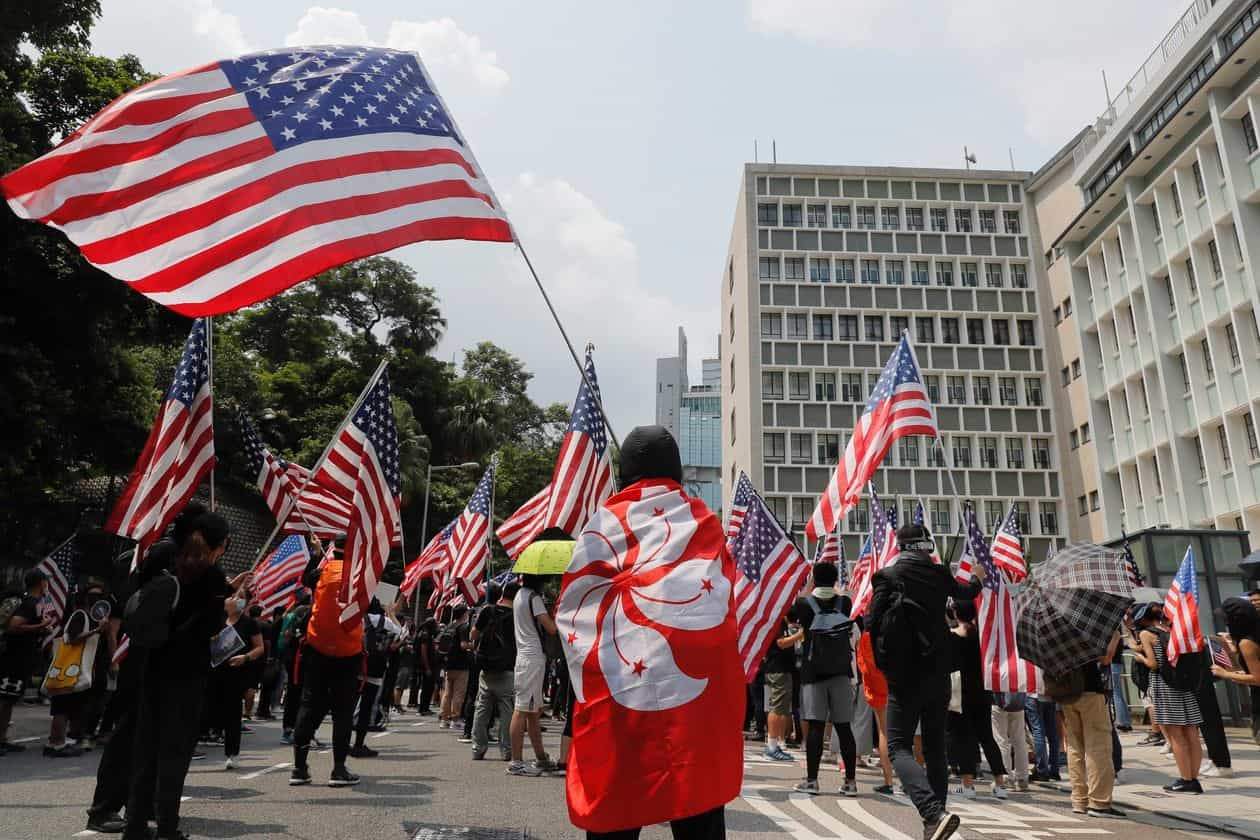China Responds in Latest Sanctions Tit-for-Tat With U.S. Over Hong Kong

China is revoking visa exemptions for U.S. diplomatic passport holders in Hong Kong and Macau and said it would impose other unspecified sanctions to retaliate for actions the Trump administration took against Chinese officials this week.
The sanctions would affect U.S. officials and nonprofit personnel who had “expressed vile positions on the Hong Kong question” along with their immediate family members, Chinese Foreign Ministry spokeswoman Hua Chunying said Thursday at a regular press briefing in Beijing.
The moves were undertaken because the U.S. had “exploited Hong Kong-related issues to seriously interfere in China’s internal affairs and harm China’s core interests,” Ms. Hua said. She didn’t say when the sanctions would take effect.
Beijing’s announcement comes after the White House placed 14 senior Chinese officials on its sanctions blacklist on Monday. The Trump administration said the officials had been responsible for eroding Hong Kong’s political autonomy.
Asked for comment on the Chinese sanctions, a spokesperson for the U.S. Embassy in Beijing referred to a statement published on their website earlier on Thursday, expressing “the United States’ deep concerns over Beijing’s ongoing assault against the fundamental rights and freedoms of the Hong Kong people guaranteed to them in the Sino-U.K. Joint Declaration.”
The sanctions tit-for-tat marks the latest flare up between Beijing and Washington over Hong Kong, the former British colony where China recently introduced a sweeping national security law aimed at crushing a youth-led pro-democracy movement.
The U.S. actions announced earlier this week prohibit the named Chinese officials from entering the U.S., freeze any assets they may hold within U.S. territories and complicate their general financial dealings abroad, since banks with U.S. ties and other countries often enforce U.S. sanctions for fear of penalties.
On Tuesday, China’s Foreign Ministry summoned the acting top U.S. diplomat in Beijing to protest the U.S. sanctions and vowed to take reciprocal countermeasures.
Because few U.S. officials travel often to China or conduct businesses there, Chinese sanctions have less bite. Republican Sens. Marco Rubio and Ted Cruz dismissed sanctions China imposed on them in August, saying that Washington would continue to confront the Communist Party over Hong Kong and other issues.
China and the U.S. have butted heads on issues ranging from technology to trade throughout Mr. Trump’s tenure as president. The Trump White House has made heavier use of sanctions than previous administrations in attempting to pressure Beijing to change its behavior.
Hong Kong has been a particular flashpoint, with China accusing the U.S. government of supporting pro-democracy protests that drew hundreds of thousands into the city’s streets.
Hong Kong pro-democracy activists Joshua Wong and Agnes Chow were sentenced to prison on protest-related offenses earlier this month. In November, almost all of Hong Kong’s opposition legislators resigned after Beijing forced the expulsion of four pro-democracy lawmakers from the city’s Legislative Council.
Photo: Pro-democracy protesters waving U.S. flags during a protest in Hong Kong last year. - KIN CHEUNG/ASSOCIATED PRESS
Link: https://www.wsj.com/articles/china-responds-in-latest-sanctions-tit-for-tat-with-u-s-over-hong-kong-11607600937











